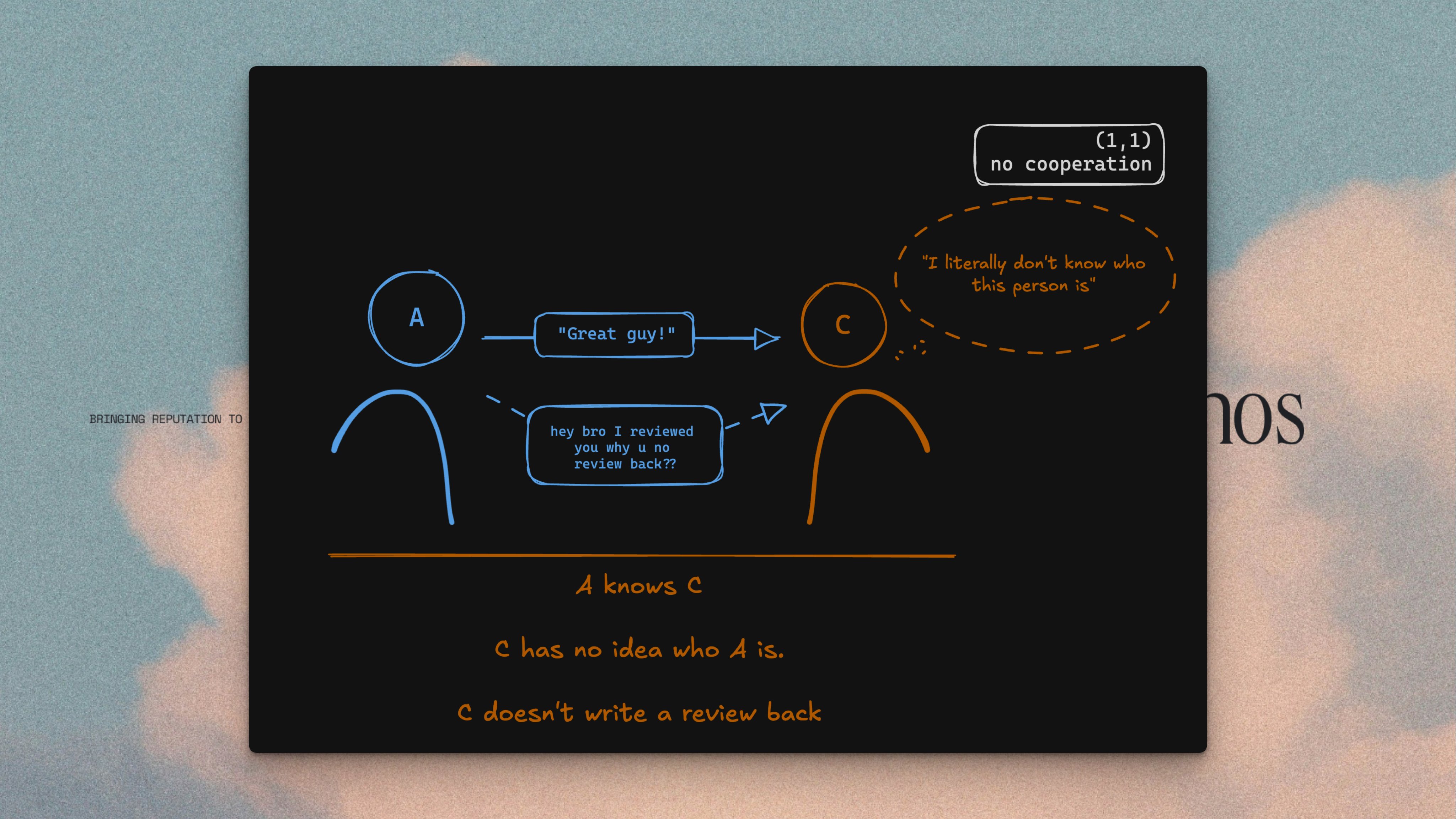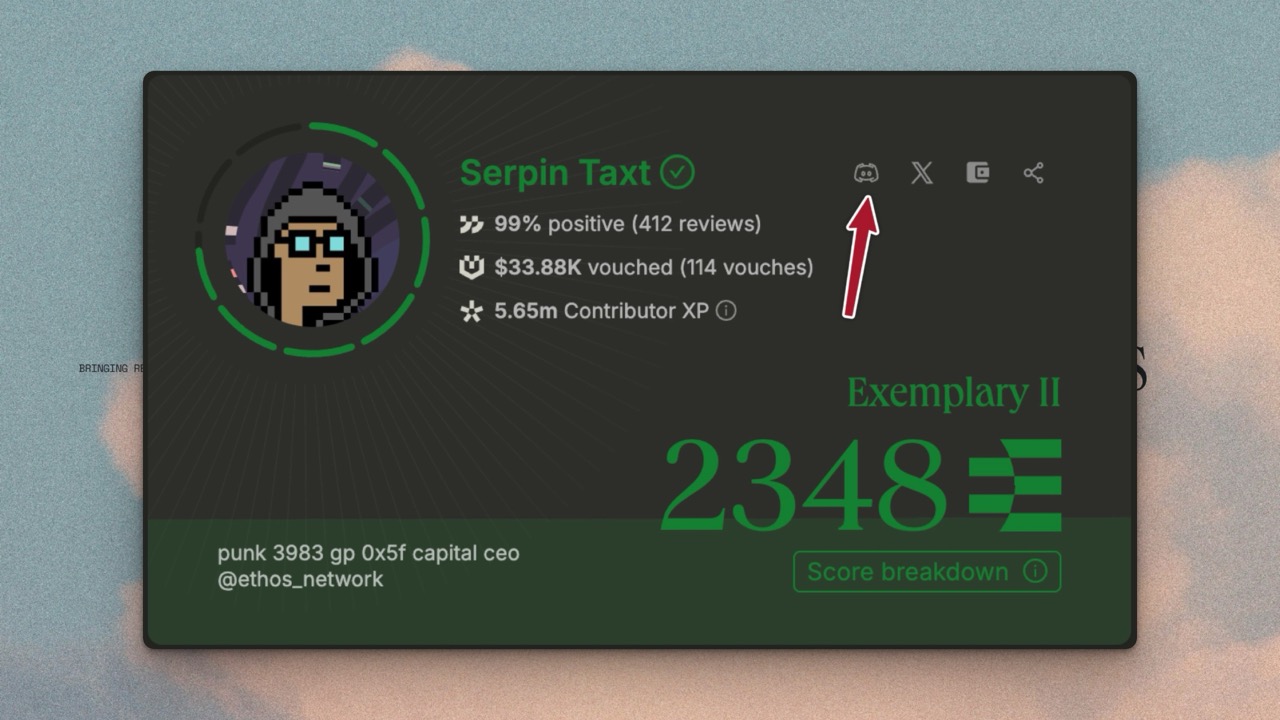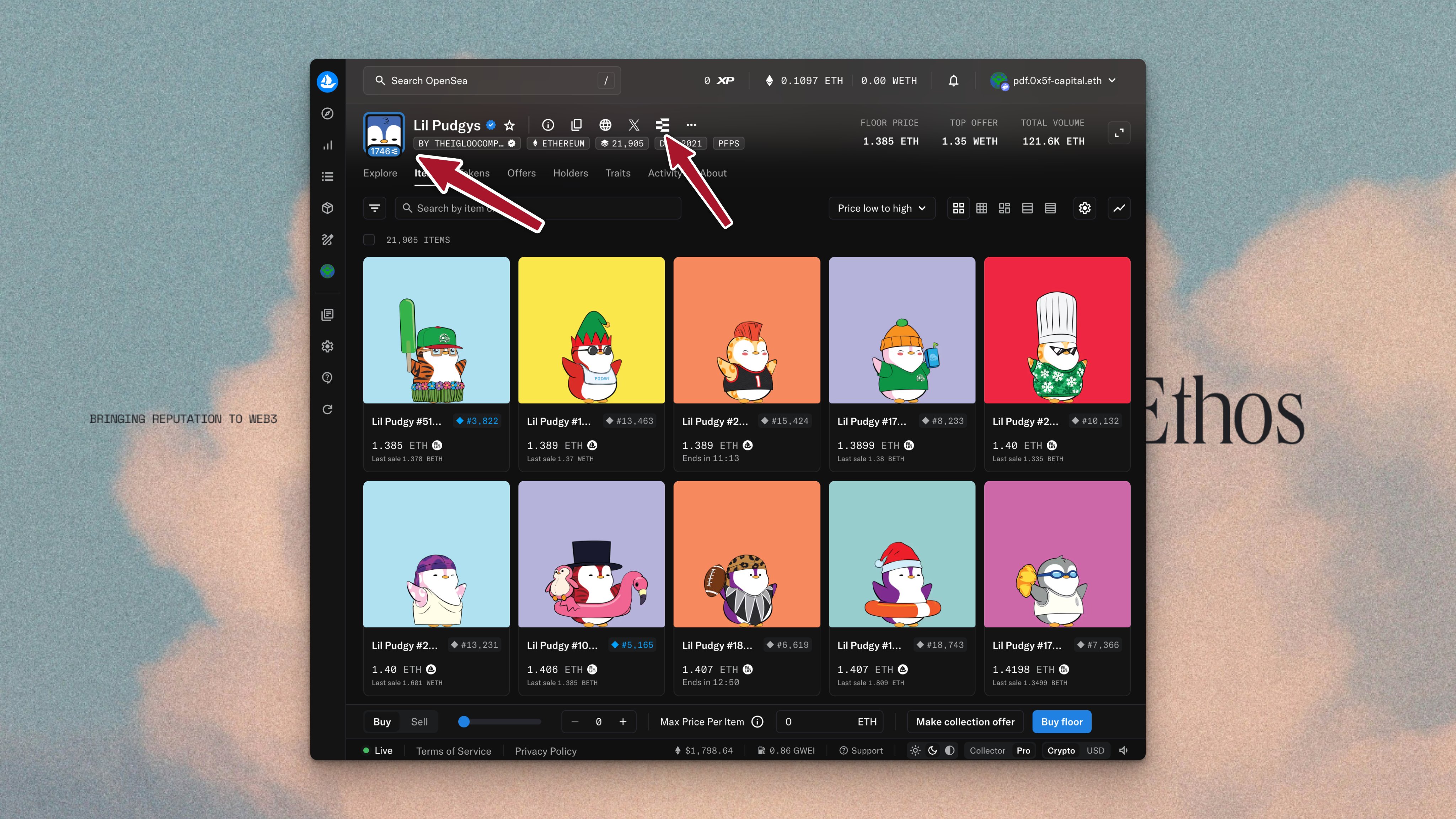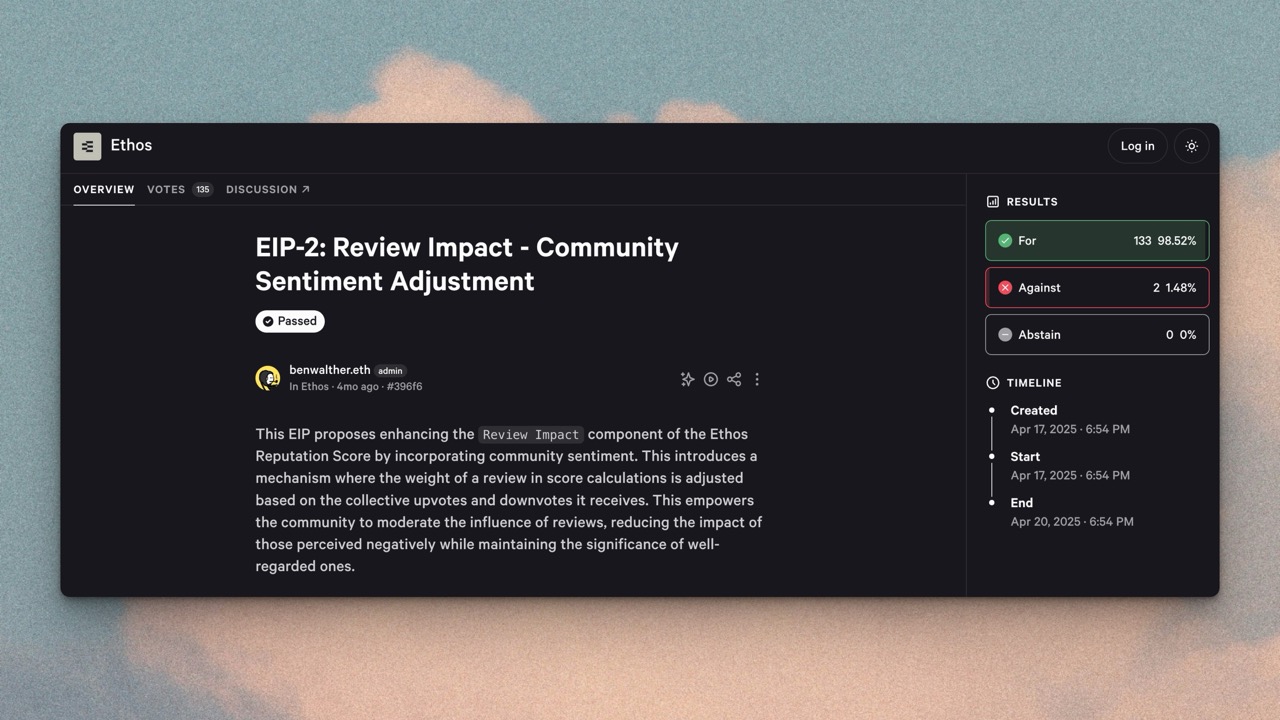The concept of (3,3) is crucial not only for Ethos but also for the broader success of crypto society. However, it's often misunderstood or misrepresented. Let's explore why cooperation, symbolized by (3,3), is central to Ethos and how it distinctly differs from previous crypto implementations.
The Misunderstood Legacy of (3,3)

(3,3) has a contentious history in crypto. Initially popularized by OlympusDAO (OHM) as a call for cooperative staking, it incentivized participants to collectively hold tokens. If everyone staked and no one sold, supply remained stable, causing token prices to rise. Friend.tech later adopted a similar model, encouraging users to buy each other's keys within a bonding curve structure. Unfortunately, when cooperation failed, both platforms suffered significant financial losses and reputational damage.

Yet, despite these setbacks, (3,3) illuminated the powerful potential of cooperative behavior in decentralized systems.
Unlike previous implementations, Ethos employs (3,3) in a fundamentally different way. On Ethos, when two people reciprocate reviews or vouches, they signal mutual trust, strengthening both individuals' credibility scores. This reciprocal validation is precisely what Ethos was designed to encourage, helping build a transparent, trust-based community.

When mutual trust is genuine, both participants gain credibility—this positive reinforcement is at the heart of Ethos’ mission. However, what happens if the trust isn't mutual or genuine?

Sometimes, relationships aren't perfectly reciprocal. Suppose person A knows person C, but not vice versa. When A requests a review from C, the dynamic shifts from a healthy (3,3) to a more ambiguous (1,1). If C reciprocates without genuinely knowing or trusting A, the act of "cooperation" becomes problematic.

In such scenarios, credibility can become manipulated—publicly signaling false trust creates long-term issues because every interaction is permanently recorded on-chain.
Ethos' defensive mechanisms

Given the potential for abuse, Ethos is equipped with robust mechanisms to combat manipulated credibility. Negative reviews and slashing serve as powerful deterrents. Because every credibility claim is transparently recorded, any dishonest vouching can be swiftly identified and addressed by the community.
Community members can highlight and penalize participants who misuse credibility signals, maintaining integrity within the system. Thus, even if "spoofing" occurs, accountability remains high, preventing systemic manipulation.
Some critics have raised concerns about "review-for-review" or "vouch-for-vouch" arrangements among community groups. Interestingly, this exact form of mutual support is highly encouraged within Ethos. Cooperation itself isn't the problem—it's exploitation or dishonesty within that cooperation that's detrimental.

Ethos embraces cooperation to uplift genuine, reputable participants who might otherwise be overlooked. By supporting each other, real reputations become more visible, credible, and impactful.
Long-Term Accountability and Community Vigilance
Every social interaction on Ethos is permanently recorded on-chain, offering unparalleled transparency. If an individual supports dubious actors who later harm their credibility, these actions are clearly observable and measurable by everyone.

Credibility scores in Ethos are not about zero-sum competition or determining who is "most reputable." Instead, they're designed to distinguish genuine participants from scams, frauds, and fake accounts. The bar for credibility is continuously raised as the community collectively monitors and identifies authentic cooperation versus manipulation.

Ethos is actively developing tools to enhance community oversight, including visualizations such as chord diagrams and weighted network graphs. These tools will enable community members to more intuitively detect questionable credibility patterns.
The community itself plays a crucial role in maintaining the integrity of Ethos. As participants actively identify and respond to credibility spoofing, the standard for authentic reputation continues to rise.
Cooperation is Ethos’ Core Strength
Ultimately, Ethos thrives on genuine cooperation—review-for-review, vouch-for-vouch interactions are fundamentally beneficial. They foster trust, community, and transparency. Only when these interactions are abused does the system respond with corrective measures.

Through consistent cooperation, vigilance, and community-driven accountability, Ethos ensures credibility remains a meaningful and reliable measure of reputation within crypto society.
Together, through genuine cooperation and vigilance, we can build a stronger, more credible community—one review at a time.
(=Ξ, =Ξ)




